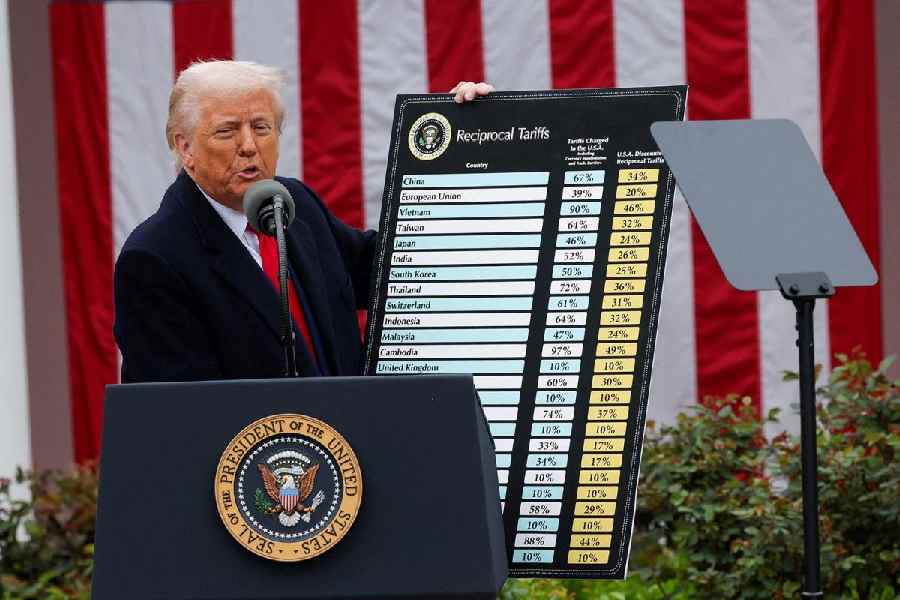In an era of escalating geopolitical tensions, the traditional tools of statecraft, hard military power and economic coercion are proving increasingly counterproductive. Rather than bending adversaries to their will, these instruments often alienate targets, forging unintended alliances and deepening divisions. This paradox is evident from recent events where attempts at deterrence through force or sanctions have instead accelerated the very outcomes they sought to prevent. As scholars like Joseph Nye, who coined the term ‘soft power’, have long argued, coercion without attraction risks backfiring, yet its overuse persists. In the meantime, soft power — rooted in cultural appeal, values and diplomacy — has waned in relevance, leaving a vacuum filled by pragmatic realignments.
Consider Russia’s full-scale invasion of Ukraine in February 2022, ostensibly aimed at halting Kyiv’s drift towards NATO. The Russian president, Vladimir Putin, framed the assault as a pre-emptive strike against Western encroachment, citing NATO’s eastward expansion as an existential threat. Yet, far from deterring Ukraine, the invasion propelled it deeper into the alliance’s orbit. Prior to the war, Ukraine’s NATO aspirations were distant; polls in 2021 showed only 54% public support for membership. By 2023, this surged to 85%, and Ukraine formally applied in September 2022, mere months after the onslaught. NATO responded with unprecedented aid: over €100 billion in military and financial support by mid-2025, including advanced weaponry from 32 member states. The realist scholar, John Mearsheimer, in a 2014 essay in Foreign Affairs, warned that NATO’s expansion provoked Russia but critics like Anne Applebaum argued the invasion stemmed from imperial ambitions, not alliance growth. The result? A galvanised Ukraine, now an “Enhanced Opportunity Partner” with NATO, and a Russia isolated from Western economies, losing an estimated 5% of its gross domestic product annually due to sanctions. This exemplifies how hard power, as David Baldwin notes in his work on economic statecraft, can trigger “rally around the flag” effects, strengthening resolve rather than submission.
A parallel is witnessed in the case of economic coercion, as seen in the United States of America’s punitive tariffs against India over its Russian oil purchases. In August 2025, the US president, Donald Trump, imposed tariffs of up to 50% on Indian exports, explicitly as ‘punishment’ for Delhi’s continued imports of discounted Russian crude, which surged from 2% of India’s oil supply pre-2022 to over 40% by 2024. India saved $17 billion through these deals, helping energy security amid global volatility. Yet, the tariffs, projected to slash Indian exports to the US by 20-30%, have not curbed the trade; instead, they have fortified India-Russia-China ties. At the recent Shanghai Cooperation Organisation summit in Tianjin, Prime Minister Narendra Modi met the Chinese president, Xi Jinping, and Putin, pledging deeper economic collaboration, including resumed direct flights and border trade with China. Analysts at the Council on Foreign Relations describe this as a “burgeoning axis”, with India reaffirming neutrality on Ukraine while expanding energy and defence pacts. The scholar, Daniel Drezner, in his critique of sanctions, highlighted how such measures often rally targets towards alternatives, eroding the sender’s influence. Here, the US’s coercion has inadvertently accelerated multipolarity, pushing India, once a ‘Quad’ partner, closer to Eurasian powers.
These are not isolated incidents. Historical precedents abound of instances when hard and economic power backfired. The US-led invasion of Iraq in 2003 was justified as regime change to curb weapons proliferation. Instead, it spawned the Islamic State, led to regional instability and over 4,000 casualties for America and cost $2 trillion. Economic sanctions on Iran since 2018, reimposed under Trump, aimed to halt nuclear ambitions but drove Tehran into China’s arms: bilateral trade hit $30 billion in 2024, with Iran joining the SCO. Rebecca Lissner and Mira Rapp-Hooper, in their book, An Open World, argue that sanctions foster “sanctions-proofing” alliances, as seen in Venezuela’s pivot to Russia amid US embargoes. A 2021 review in International Studies Review synthesises data showing sanctions succeed in only 34% of cases, often prolonging conflicts or entrenching autocrats. Rachel Brooks’s research highlights that comprehensive sanctions on authoritarian regimes, like those on North Korea, are counterproductive, enriching elites while harming civilians.
Amid this, soft power’s irrelevance compounds the issue. Nye once posited that shared values like democracy could bridge divides. Yet India’s democratic bonds with the US have not mitigated tariff tensions; Delhi views Washington as hegemonic, prioritising strategic autonomy. Similarly, ethnic and cultural ties between Ukrainians and Russians — a shared Slavic heritage and Orthodox faith — failed to avert war; Russia’s soft power index plummeted post-invasion, dropping 10 spots in global rankings. As Nye reflected in 2022, while hard power decides battles like Ukraine, soft power’s erosion, exacerbated by populism and disinformation, leaves coercion unchecked. In a multipolar world, where digital narratives fragment appeal, soft power struggles against raw interests.
The implications are profound: overreliance on coercion risks a fragmented global order, where alienated states form counter-blocs. Policymakers must therefore rediscover hybrid strategies, blending deterrence with diplomacy in order to foster genuine alignment. As Baldwin warns, the “logic of choice” in statecraft demands recognising when power pushes away rather than pulls in. Failure to adapt could see today’s superpowers isolated tomorrow.
Vipin Juneja is Co-founder, Centre for New Economy Research










